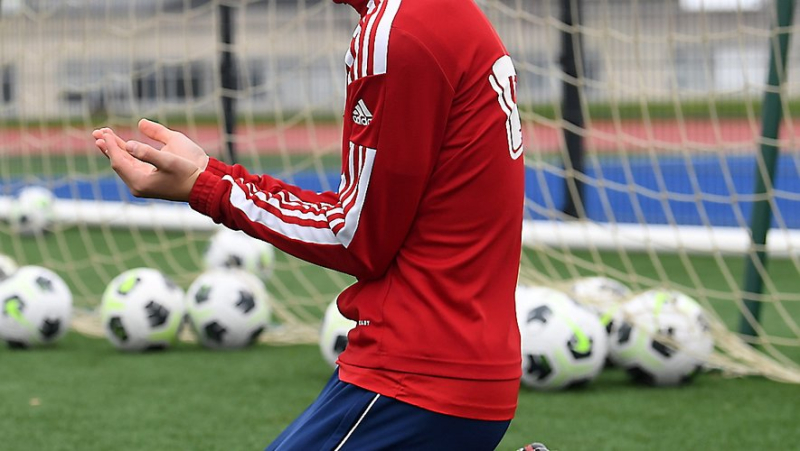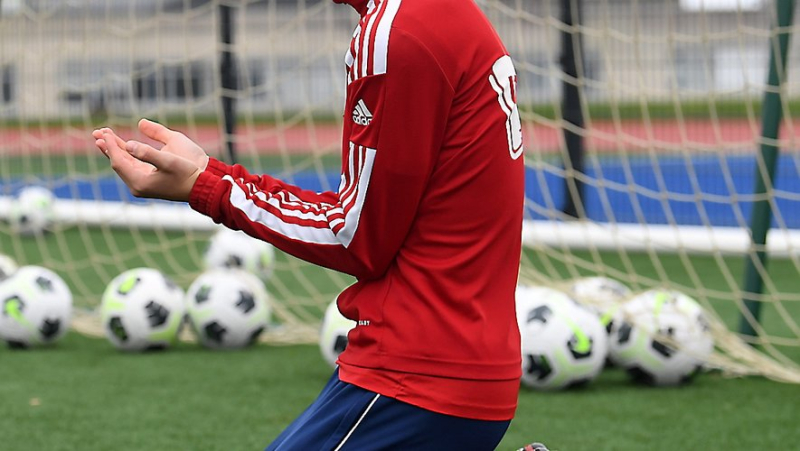“It can be a challenge for performance”: Ramadan, a fast to manage for high-level athletes

Athlètes de haut niveau comme sportifs amateurs doivent adapter leur routine lors du ramadan. MAXPPP – Nicolas Creach
Since March 10, many high-level Muslim athletes have been involved in fasting. A period which requires a certain adaptation, for those concerned as well as the clubs.
The subject has become sensitive, almost taboo. Every year from now on, the month of Ramadan enters the sporting news, particularly football. With its share of controversies but also questions.
How can this fast, from dawn to sunset, harmonize with high-level practices, demanding in terms of nutrition ? How do athletes of the Muslim faith adapt? they at this modified biological rhythm ? Since Sunday March 10, and until April 9, questions once again escort this most sacred month of Islamic culture.
"For Muslims, this fast is a way of being in contact with God. It allows the body to be purified", explains Mohamed Amar, delegate of the Grand Mosque of Paris in Occitanie and president of the Annour du Plan-Cabanes mosque, in Montpellier.
Celebrating the revelation of the Koran, among the five pillars of Islam, Ramadan has gradually established itself as an essential part of the sporting calendar. "When I was a player, there weren't many players, we didn't talk about it much either , remembers Michel Der Zakarian. Today, players practice it every day, even during matches."
Like the coach of Montpellier HSC, high-level sport is confronted with this religious reality. Some countries and sports federations have decided to adapt. In England, for the first time in 2021, the football championship (Premier League) allows players to observe a short break in the middle of a match to break the fast. Germany and the Netherlands chose to follow suit.
For the FFF, secularism takes precedence
Not France, where the French Football Federation recalls the principle of secularism enshrined in the first article of its statutes. The French football authority also announced last week that the organization of international courses would not be suitable for Ramadan.
"Concretely, this means that we do not modify the conditions for exercising our selections for religious criteria , said the president of the FFF, Philippe Diallo, to Le Figaro. […] (This) means that when you are in the national selection and in competition, it is possible to shift your practice."
Also read: Ramadan: religious neutrality and respect for secularism, the French football teams will not change their program
The position caused a lot of reaction. "The hunt for Muslims", wrote about X Demba Ba, former Senegalese striker for Chelsea and current advisor to Dunkirk (L2). While at least one Lyon player would have preferred to decline the U19 tricolor selection rather than interrupt his fast.
At the MHSC, a little less than ten players are required to do so, including only one on match days. "It depends on everyone's beliefs and we adapt", notes Michel Der Zakarian, whose staff, and in particular the dietitian, favors individual approach and monitoring rather than a common rule.
Fasting shift and impact on the body
As in Montpellier, some high-level athletes therefore choose to postpone their fast. To better catch up before Ramadan the following year. A practice that has no religious consensus."Sport is not a reason, unlike illness, pregnant women or travel", believes Tahar Nedromi, president of the Petit-Bard mosque Montpellier. "Ramadan adapts to everyone, to make things easier. But (breaking the fast) must be done discreetly, so as not to "taunt” the others", argues Mohamed Amar.
The debate calls for another, on the potential physical consequences and performance of such a regime upheaval. "Your body gets tired, so does your brain due to lack of hydration, estimates Michel Der Zakarian. Some people sweat more than others. This could cause injury." "But in general, athletes are used to managing this period from a very young age", replies M.Amar.

For its part, FIFPro remains measured. According to the global football players' union, only two medical studies have been carried out, in Qatar and Tunisia. "There are currently no clear and conclusive results showing that Ramadan carries an increased risk of injury, writes Vincent Gouttebarge, chief physician of the organization. Despite this lack of evidence, players and staff should exercise caution during this time of year."
The former professional player nevertheless warns of the risks of "sleep disorders" linked to this "modified biological program". "Combined with lack of nutrition and hydration during the day, this can be a challenge for performance", he notes. "However, adds Professor Gouttebarge, […] the spiritual element of Ramadan can act mentally as an additional source of motivation or inspiration to perform better."
I subscribe to read more




